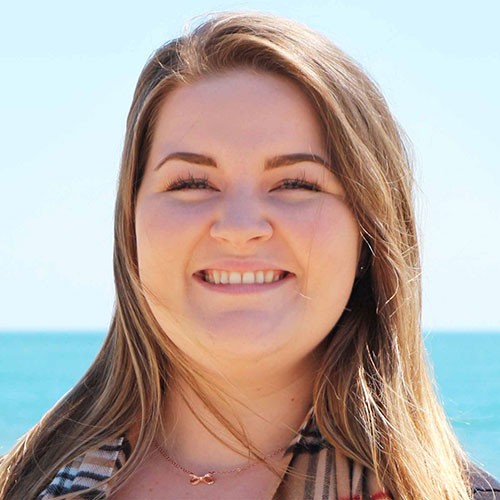
‘I was walking down a corridor in the cell wing of an old Victorian jail, which is not a comfortable environment for a management consultant, but once I got to the other end and involved in the sessions, it was incredible.’
So says Matt Watt, a partner and global leader for organisation and workforce at EY, who volunteered, along with other colleagues, to go into Pentonville prison in London to work with the charity StandOut, which helps make prisoners more employable.
‘It’s about improving confidence so prisoners have the skills and capabilities employers will want’
Watt explains: ‘It’s doing CV sessions, workshops and things like that, but ultimately it’s about improving the confidence of the participants so when they get out they have the skills and capabilities employers want.
‘The guys from StandOut, many of whom are ex-prison officers, do an incredible job of getting men who are not used to a learning environment to support each other through the sessions, so they leave them feeling positive.’
Positive impact
Watt’s involvement comes under the umbrella of EY Ripples, the firm’s global corporate responsibility programme, which aims to ‘positively impact a billion lives by 2030’. EY also engages with the prison service’s New Futures Network, which brokers partnerships between prisons and employers to support prisoners and employ ex-offenders.
But the firm is not alone. KPMG recently became the first white-collar British business to employ ex-offenders as part of a partnership with government, bringing them into a wide range of roles, including technology development.
‘Businesses never looked beyond my criminal record. It felt quite belittling’
Reflecting on his job search experience after leaving prison, one ex-offender, who is now a KPMG employee, says: ‘It was rejection after rejection. Businesses never looked beyond my criminal record. It felt quite belittling because no one’s looking at your skills and experience. KPMG’s pilot programme wasn’t just refreshing to see; it’s a lifeline that gave me hope. To get a job at KPMG – it’s a miracle.’
It’s not just the Big Four firms providing this support, either. Paul Samrah, a partner at mid-tier firm Moore Kingston Smith, says: ‘We’ve partnered with the charity St Giles Trust to support those who are not getting the help they need, including ex-prisoners looking to get into the job sector after being out of it for a while. We’ve done things like interview techniques and training using laptops that we’ve supplied, which have really helped.’
Refugee relief
This employability support extends to other disadvantaged groups, including refugees, of which there are an increasing number from the conflicts in Ukraine and Palestine. PwC is involved in this area.
‘Some of our people were going over to France but you don’t need to go to Calais to work with refugees’
‘A few years back some of our people were going over to France to help at the camps,’ says David Adair, head of community engagement at PwC. ‘But then we thought, you don’t need to go to Calais to work with refugees; they’re in places like Bradford and London, too. So we started a refugee programme that’s grown really popular with staff, who lead employability workshops. We then follow some of the people, and a few have gone on to get jobs at PwC.’
The firm has been doing the same with Ukrainian refugees in the UK, working with recruitment teams and refugee organisations, and using its network of contacts to help people into jobs at PwC and other organisations. Adair has even driven an ambulance to Ukraine as part of a convoy taking medical supplies to the country.
Meanwhile, the UK team at Moore Kingston Smith has been helping counterparts in the Ukraine office, raising money to pay urgent relocation expenses. ‘We heard tough stories of families fleeing in their cars in the middle of the night to the Polish border,’ Samrah says. ‘The funds were transferred to the individuals once they’d set up a bank account in the new country.’
Veteran transition
Another group that professional services firms are supporting is military veterans. Deloitte has set up a military transition and talent programme, which actively supports former forces personnel making the transition back into civilian life.
‘We’ve helped over 7,000 veterans either individually or through charities and start-ups, and thousands more through our Insight Day events, which provide information and advice for service leavers,’ says Chris Recchia, a partner and head of the programme at Deloitte, who served in the army himself. ‘It’s all geared towards helping them transition, but we’ve also accessed talent who have come through the firm.’
‘Yes, they’re given orders, but they then have to formulate plans, lead teams and communicate effectively’
Veterans bring benefits to organisations such as reduced sick leave, greater resilience and faster promotions. And Recchia says that the perception that service personnel are just given orders to carry out is mistaken. ‘Yes, they’re given orders, but they then have to formulate plans, lead teams and communicate effectively. These are all valuable transferable skills for the business world.’
Recchia also stresses veterans’ ability to change organisational cultures. ‘They can come into organisations with extremely positive attitudes and a way of operating that can really help transform the ways things work. Unsurprisingly, many go on to head up major global companies.’
With benefits for all sides, long may the symbiosis between corporate social responsibility and disadvantaged communities continue.
Support for schools
Accountancy firms are also providing support in schools. PwC, for example, offers mental health training to teachers in Bradford. ‘The student need for it has gone through the roof since Covid,’ says David Adair, head of community engagement at PwC.
In addition, the firm is equipping students with tools for the workplace, with help from employees from diverse backgrounds. Adair notes that it’s important to move perceptions of the profession away from what he calls ‘the pale male’: ‘We’ve got many young positive role models from ethnic minorities and the LGBTQ community, so we get them to go out and the students see they can work at a place like ours.’
Moore Kingston Smith has worked with the Rise Initiative to improve young people’s lives through outreach, mentoring and engagement, and offers skills workshops at schools in areas of low social mobility.
Duncan & Toplis is part of Access Accountancy, giving opportunities to young people from different backgrounds, including work experience. ‘We also go into schools to talk to the students about different jobs, not just accountancy,’ says chief people officer Heidi Thompson. ‘We have two partners – one who came through the university route and the other who left school at 16 – who talk to the kids about different paths you can take.’



